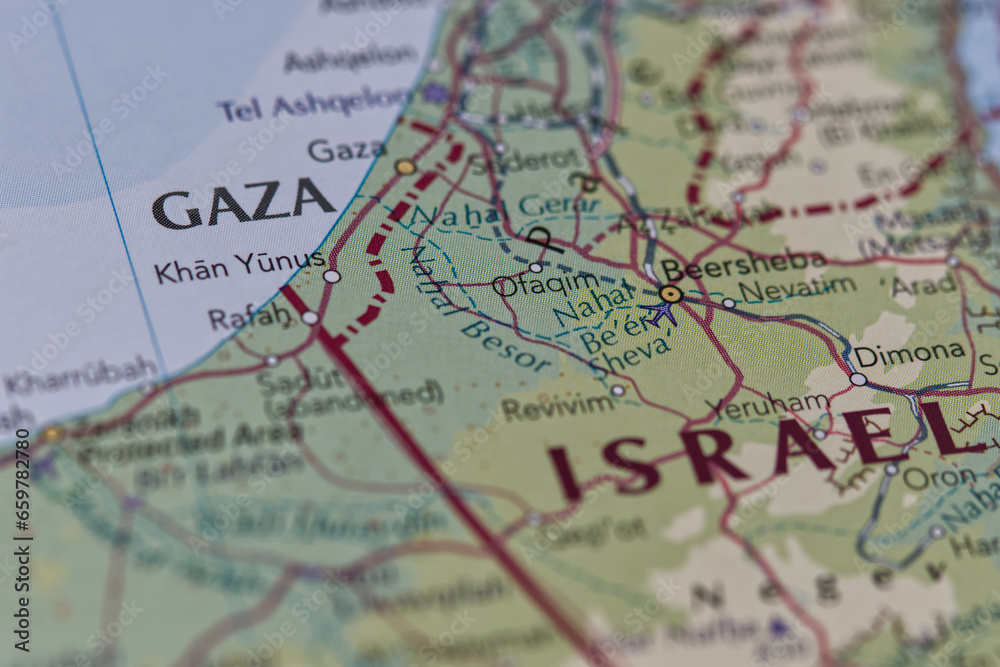Our duty is to the United States…We should be friendly to all nations, and in any crisis we should judge each nation by its conduct in that crisis. We should condemn the misconduct of any nation, we should oppose its encroachment upon our rights with equal vigor…according to what it actually does on the given occasion with which we have to deal.
Theodore Roosevelt, America for Americans, Afternoon Speech in St. Louis, MO, May 31, 1916
On October 7, Israelis were the victims of a brutal terrorist attack by Hamas, the titular government of the Gaza Strip. Far from being any kind of justified military response, it was an orgy of deliberate civilian murders, rapes, and even beheadings that violated every moral and legal rule of war. Israel is now engaged in a bloody invasion of Gaza to attempt to eliminate Hamas for good. Whether it will succeed remains to be seen.
This latest war is yet another round of violence in a perennially violent region of the world. As I mentioned in my previous post “Dominus Flevit”, Israel and Palestine have had the misfortune of living at the crossroads of empires for millennia. Israel was an independent nation for only about 500 years and otherwise lived under occupation by stronger powers for the rest of its life. Opponents of the Gaza invasion call for a “ceasefire now”. Israelis would undoubtedly say “And then what?” “Negotiation – for what?” The pat answer is “peace”, but there are many kinds of peace. Israelis know that in the Middle East, the only peace that has lasted is the peace of subjugation and the grave. They are understandably determined to do whatever is necessary to avoid suffering that fate yet again.
However, the Palestinians have learned this lesson too, often at the hands of Israel itself. Originally, their own fellow Arabs betrayed them by taking over the state that had been granted to them in the 1948 United Nations partition that created Israel. Since Israel conquered the West Bank and Gaza in the Six Day war of 1967, they have lived under Israeli occupation, which became increasingly onerous after Israeli politics shifted right in the 1990s. The prospect of a peaceful transition to a Palestinian state envisioned by the Oslo Accords was steadily and brutally rejected by Israel in the form of forced Jewish settlement of the West Bank. Indeed, when Palestinian protesters chant “From the River to the Sea”, they are simply adopting a similar slogan previously chanted for Israelis by some members of the present government of Binyamin Netanyahu.
Into this cauldron of ethnic and religious hatred blindly strode Uncle Sam, first as part of the Cold War rivalry, and then because of American dependence on Arab and Iranian oil. As we reduced this dependence, we had an opportunity to distance ourselves from the region. Realist foreign policy theory (see this) would dictate that our only real national interest there was to prevent domination of the region by Iran, Russia or another power. This goal appeared to be realized as Turkey became a player and Israel was on the verge of rapprochement with Saudi Arabia and the Gulf States. If the JCPOA agreement with Iran limiting its nuclear program had been preserved, Iran’s ability to become a hegemon in the current mix of powers would have been stymied and a stable balance of power achieved.
Instead, the US has willingly taken on the primary responsibility for achieving the impossible dream – a lasting peace in the region that addresses all the warring parties’ grievances. When this inevitably failed, we then became responsible in their eyes for their miseries, even more than those who are actually inflicting them. To preserve diplomatic flexibility, we should have openly criticized and taken concrete steps to pull the Netanyahu government back from its settlement policy fueling the anger behind Hamas, Hezbollah and other radical elements. We also should have withdrawn our troops from Syria and Iraq to again avoid being further tarred with responsibility for the region.
However, the Biden Administration’s first response was to go beyond support and tie America even closer to Israel. In trying now to respond to the carnage in Gaza by calling for a humanitarian pause, it risks appearing feckless and indecisive in a culture that prizes strength. The President’s aid package for Israel seeks a total of $14.3 billion of military assistance. All of this aid should be in the form of loans and not grants, which would serve two purposes. First, Israel is a rich country and should not need free money to finance its defense. Secondly, it concentrates the minds of Israeli leadership on the limits of American support and thus the need to curb it’s settlement policy and West Bank expulsions. If they do so, we can potentially forgive the loans. It would be a small price to pay for reducing tensions in the region. Moreover, any aid plan should be voted on in a separate bill, not rolled into a grab bag of aid for Ukraine and other projects. It is far past time for our role in the Middle East to be fully considered, debated and voted on in the Congress. Finally, we should withdraw our forces from Syria and Iraq to prevent them from becoming free targets and further enflaming resentment against the US.
The Civil War general William Tecumseh Sherman once tersely said “War is hell”. As a veteran himself, TR certainly knew this was true and was proud no American servicemen died during his presidency. If we are to avoid it occurring in the Middle East, we will need to reduce our involvement and withdraw our gaze over the horizon rather than court seeing our blood and reputation run in the trenches. This should have been the goal of every President and, hopefully, will become the goal of President Biden before it is too late.

